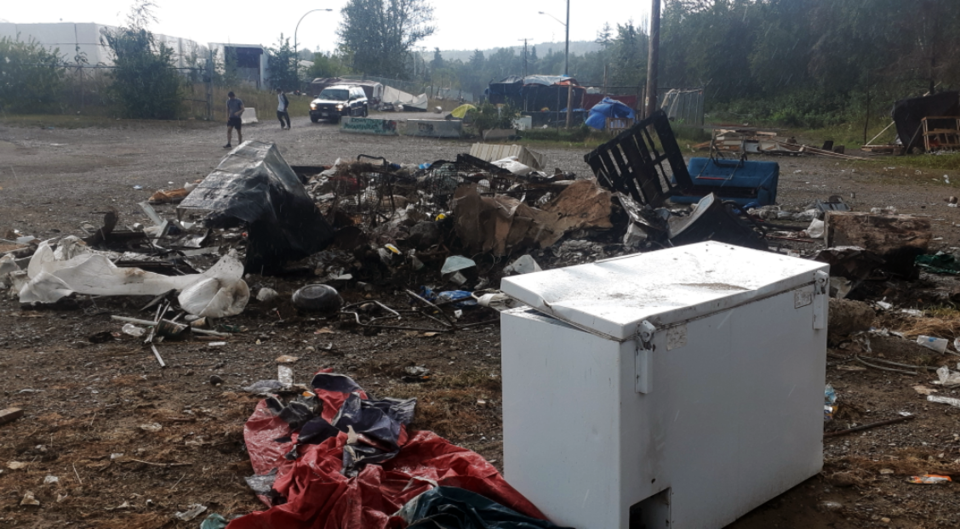What would happen if an informal group of concerned local residents decided to clean up the largely empty Lower Patricia homeless encampment known as Moccasin Flats?
Between Christmas and New Year’s, a group of Chilliwack residents hauled away the debris (including appliances and a travel trailer) from an abandoned camp perched between a busy roadway and a local river. As a Global News story made clear, the cleanup volunteers cared deeply about the desperate situation of the people who needed to live there earlier but were also worried about the environmental damage of the waste left behind ending up in the river.
The story contained a statement from Chilliwack RCMP.
“If the group of volunteers have concerns, they should be brought up to the individual or entity responsible for the specific property, either a landowner, Indigenous community or appropriate government agency,” it said. “Often a collaborative approach in addressing these types of situations has proven to be successful in past similar instances.”
But what if the individuals responsible are nowhere to be found?
And what if the entity responsible for that property can’t and/or won’t clean it up?
Looking locally, does the current court injunction that keeps the City of Prince George and its employees from removing anything from Moccasin Flats apply to concerned individuals picking up garbage along Lower Patricia?
A group of volunteers cleaned up the site last spring and Prince George residents already rally every April to clean up public property, so the precedent is there to do it any time, anywhere.
This kind of work would have to be done carefully, out of health concerns from handling potentially toxic materials, and also with sensitivity, to avoid personal conflicts and seizing belongings of vulnerable individuals.
But if that bar is met, what’s stopping local residents from taking action?
Based on the Chilliwack RCMP statement, there’s nothing illegal about it. It also seems there’s no need to ask for permission.
Done safely and properly, it appears residents have the authority to clear up unsightly piles of abandoned waste on public property.
And maybe it’s time they did.
Editor-in-chief Neil Godbout



